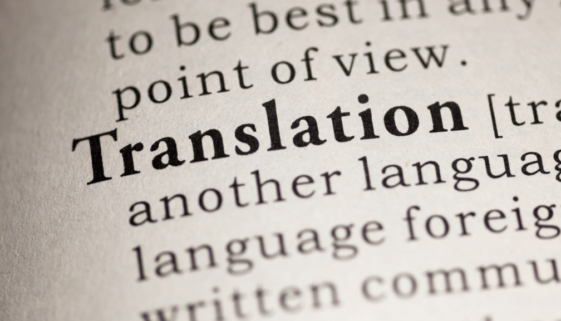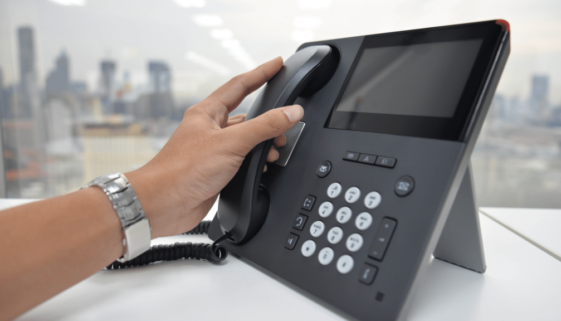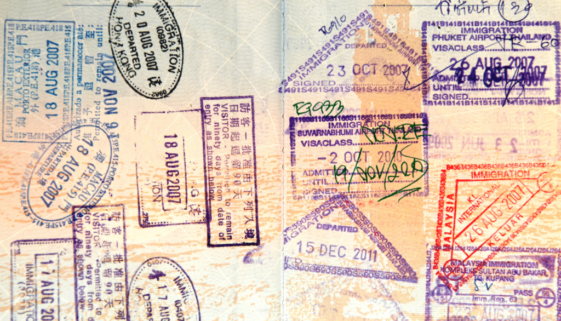
About Nuria Traveler
Posts by :
- Apostille
- Authentication
- Business Translation
- Notary
- Transcription
- Translation
- Travel
- Travel Document
- Travel Tips


Leave Your Visa Processing in Our Hands
When planning a trip, we often focus on the excitement of the destination, the itinerary, and the experiences that await us. Nuria Traveler
However, one of the most crucial and often complicated aspects is visa processing. Each country has specific requirements, mandatory documents, and processing times that can cause stress if not handled correctly.
At Nuria Traveler, we specialize in visa processing for both individuals and organizations, providing our clients with a reliable and efficient service so they can travel worry-free. Our team of experts is ready to guide you through every step of the process, ensuring that you meet all the necessary requirements to obtain your visa without any setbacks.
Why Trust Our Services?
✅ Personalized Guidance: We analyze your case and help you choose the right type of visa for your needs.
✅ Efficient Management: We take care of document collection and submission, avoiding errors that could delay your application.
✅ Support Throughout the Process: From application to visa approval, we are with you every step of the way.
✅ Up-to-Date Knowledge: We stay informed about the latest immigration requirements for different countries.
Avoid Issues and Travel with Peace of Mind
Many people have had their travel plans disrupted due to a lack of knowledge about visa requirements or mistakes in their applications. With Nuria Traveler, you can be confident that your process is in professional hands.
If you have an upcoming trip and need help with your visa, contact us today. We help make your travel plans a reality without complications!

What’s the Difference and Why It Matters for Your Documents
If you’ve ever needed to handle legal documents, you’ve probably heard of notarization and authentication. Nuria Traveler
While both processes play a key role in ensuring the validity of documents, they serve different purposes. Knowing when you need one—or both—can save you time and hassle, especially if your documents need to be recognized internationally.
What Is Notarization?
Notarization is simply the process of having a notary public verify the identity of signers, ensuring the signature is genuine and voluntary. Whether you’re signing contracts, powers of attorney, or other legal agreements, a notary helps protect against fraud by witnessing the signing and confirming its legitimacy.
What Is Authentication?
Authentication goes one step further. It verifies that the notary or official who signed the document has the authority to do so, often for documents that need to be used outside the U.S. Authentication is typically required for international transactions, making it an essential step if your paperwork needs to be recognized abroad.
When Do You Need These Services?
Many legal situations call for notarization, while international use often requires authentication as well. But how do you know what your specific situation requires? That’s where we come in.
Why Choose Our Notary and Authentication Services?
Our company in Virginia specializes in offering both notarization and authentication services, ensuring your documents are prepared for both local and international use. Whether you’re dealing with personal legal matters or business transactions, we’re here to help you navigate the process with ease.
Ready to get started?
Contact us today to learn how we can assist you with your document needs. We’ll ensure your paperwork is in perfect order, saving you time and effort.

Which One Do You Need?
In today’s globalized world, it’s common to require the legalization of documents for use abroad. Nuria Traveler
However, there’s often confusion between two key terms: apostille and authentication. Understanding the difference is crucial to ensure that your documents are accepted in the destination country. Here’s a breakdown of each process and when to use each one.
What is an Apostille?
An apostille is a certificate issued by a country that is a signatory to the Hague Convention of 1961, which authenticates the signature on a public document. This process simplifies the legalization of documents for use in another country that is also a party to the Convention. An apostille is necessary when your document will be presented in a country that is a member of this agreement.
Examples of documents that require an apostille:
- Birth, marriage, or death certificates.
- Notarial documents.
- Diplomas and academic transcripts.
What is Authentication?
Authentication, on the other hand, is a more complex process used to legalize documents for countries that are not signatories to the Hague Convention. It involves several steps, which may include validation by local authorities, followed by authentication at the consulate or embassy of the country where the document will be used.
Examples of documents that require authentication:
- Commercial documents.
- Notarial powers of attorney for use in non-Hague Convention countries.
- Any document to be presented in a non-signatory country.
Which One Do You Need?
The choice between apostille and authentication depends on the country where you plan to use your documents. If it’s a Hague Convention country, an apostille will suffice. If not, you’ll need to go through the authentication process.
How Can We Help?
At Nuria Traveler, we specialize in both processes. Whether you need an apostille or authentication, our team of experts handles the entire process, ensuring that your documents are accepted in the destination country.
Ready to get started? Contact us today, and we’ll guide you every step of the way.

Bridging Language Gaps with Precision
For over a decade, our commitment to excellence has empowered thousands of clients to navigate the intricate web of legal documentation with confidence. Nuria Traveler
At Nuria Traveler, we take pride in offering top-tier Certified Translation Services tailored to meet the stringent requirements of various official institutions, including the U.S. Citizenship and Immigration Services (USCIS) and law firms across the United States and Canada.
Unraveling the Complexity
Legal proceedings, immigration applications, and official communications often transcend linguistic boundaries. Our Certified Translation Services act as the crucial link in ensuring seamless communication and comprehension across languages. Whether it’s immigration forms, marriage certificates, or other legal documents, our expert translators possess the linguistic proficiency and legal acumen to accurately translate and certify documents for official use.
The Assurance of Accuracy
Accuracy is paramount in the realm of legal documentation. Any mistranslation or misinterpretation can lead to significant consequences, ranging from delays in processing to potential legal complications. With Nuria Traveler’s Certified Translation Services, clients can rest assured that their documents are meticulously translated and certified to meet the stringent standards set forth by USCIS and other legal entities. Our team of seasoned translators undergoes rigorous vetting processes and stays abreast of evolving legal terminology and regulations to deliver translations of unparalleled accuracy and reliability.
Tailored Solutions for Every Need
We understand that each client’s requirements are unique. That’s why we offer a comprehensive suite of Certified Translation Services designed to cater to a diverse array of needs. Whether you’re seeking translation services for immigration purposes, marriage certificates, or other legal documents, our team works closely with you to understand your specific requirements and deliver tailored solutions that meet and exceed your expectations.
Exceeding Expectations, Every Time
At Nuria Traveler, our commitment to excellence goes beyond mere translation. We strive to exceed our clients’ expectations at every turn, delivering not just accurate translations, but also unparalleled customer service and support. From prompt response times to transparent communication, we’re dedicated to making the translation process as seamless and stress-free as possible for our clients.
Experience the Nuria Traveler Difference
Join the ranks of thousands of satisfied clients who have entrusted their Certified Translation needs to Nuria Traveler.Experience the difference that expertise, professionalism, and unwavering dedication can make in navigating the complexities of legal documentation across language barriers. Contact us today to learn more about our Certified Translation Services and how we can assist you in achieving your objectives with confidence and clarity.

Traducción de Documentos Académicos y Certificados para Grandes Instituciones Educativas
In an era characterized by globalization and multiculturalism, educational institutions worldwide are experiencing an influx of international students seeking academic opportunities. Nuria Traveler
However, the diversity of educational systems and languages poses a significant challenge for admissions offices and academic evaluators. One crucial aspect of this challenge is the translation of academic documents and certificates from various languages into the language of the institution’s instruction. This process is vital for ensuring the credibility and authenticity of the applicants’ credentials.
Major educational institutions, whether universities, colleges, or schools, face the daunting task of accurately interpreting and evaluating academic documents from a wide range of linguistic and educational backgrounds. These institutions often receive transcripts, diplomas, certificates, and other academic records in languages unfamiliar to their staff. As such, the need for proficient translation services becomes paramount.
Translation of academic documents involves more than mere linguistic conversion; it requires a deep understanding of educational systems, grading scales, and terminology specific to different countries. Each educational system has its unique features, and translating academic documents involves not only rendering text into another language but also ensuring that the content accurately reflects the educational achievements and qualifications of the applicant.
Moreover, academic institutions must prioritize the authenticity and integrity of translated documents. Admissions offices rely on these translations to make informed decisions about applicants’ eligibility and academic preparedness. Therefore, partnering with reputable translation agencies or employing qualified translators with expertise in educational translation is essential.
Additionally, the translation process must adhere to strict confidentiality and data protection standards. Academic documents contain sensitive information about individuals’ educational histories, and institutions must ensure that this information remains secure throughout the translation process.
The significance of accurate translation extends beyond the admissions process. Once enrolled, international students may require translated documents for various purposes, such as applying for scholarships, transferring credits, or seeking employment opportunities. Providing ongoing translation services ensures that international students can navigate the academic landscape smoothly and access the same opportunities as their domestic counterparts.
Furthermore, as educational institutions strive to foster inclusivity and diversity, accommodating students from diverse linguistic backgrounds becomes imperative. Offering translation services demonstrates a commitment to supporting internationalization efforts and creating an inclusive learning environment where all students feel valued and understood.
In conclusion,

The translation of academic documents and certificates is a critical component of the admissions process for major educational institutions. It involves more than linguistic conversion, requiring an understanding of diverse educational systems, adherence to strict confidentiality standards, and a commitment to inclusivity. By prioritizing accurate and authentic translations, educational institutions can effectively evaluate applicants’ credentials and provide essential support to international students throughout their academic journey.

Unleashing the Potential of Transcription in the Business World
In today’s fast-paced business world, effective communication is key to success. Voice recordings, such as phone call conversations, interviews, or meetings, hold valuable information that can drive business decisions and collaboration. –Nuria Traveler

A Comprehensive Guide to Business Visas
In the globalized business landscape, frequent travel is often a necessity for professionals seeking to expand their horizons and build international connections. NuriaTraveler
Understanding the intricacies of obtaining a business visa is crucial for a seamless and successful journey. Here’s a comprehensive guide for business travelers:
1. Know Your Destination:
Research and understand the specific visa requirements of your destination country. Regulations can vary widely, so ensure you have the latest information to avoid complications.
2. Types of Business Visas:
Familiarize yourself with the various types of business visas available. These may include single-entry, multiple-entry, or long-term visas, each serving different travel needs.
3. Documentation:
Gather all necessary documentation, including a valid passport, invitation letters, proof of accommodation, and any required business-related documents. Ensure these are up-to-date and meet the specific requirements of the host country.
4. Purpose of Travel:
Clearly articulate the purpose of your trip when applying for a business visa. Whether it’s attending meetings, conferences, or negotiations, providing a detailed itinerary can strengthen your application.
5. Application Process:
Understand the visa application process of the host country. Some countries may require in-person interviews, while others allow for online applications. Start the process well in advance to account for any unforeseen delays.
6. Duration and Renewal:
Be aware of the duration of the business visa and whether it can be extended or renewed. Plan your itinerary accordingly and ensure compliance with the visa’s terms and conditions.
7. Stay Informed on Changes:
Keep abreast of any changes in visa policies and regulations. Governments may amend rules, so staying informed ensures that you navigate the process smoothly.
8. Business Visa Etiquette:
Respect the rules and regulations associated with business visas. Engage in professional conduct during your stay and adhere to the purpose outlined in your visa application.
9. Seek Professional Assistance:
If the visa application process seems complex, consider seeking assistance from professional visa services. They can provide guidance, ensuring that your application is accurate and complete.
10. Plan for Contingencies:
Always have a contingency plan in case of unexpected delays or issues. This may include having a contact person in the host country or access to local support services.
By proactively addressing the intricacies of obtaining a business visa, you empower yourself to embark on successful international ventures. Remember, thorough preparation is the key to a smooth and rewarding business travel experience.
Every country has different requirements, we can help

A Comprehensive Guide to Passports for Business Travelers
In the fast-paced world of business, where opportunities often span across borders, having the right passport is essential for seamless and efficient travel.
A well-prepared business traveler understands that their passport is not just a document for identification; it is a key to unlocking international ventures and collaborations. In this article, we’ll explore the importance of passports for business travelers and provide valuable insights on optimizing your travel document for successful global ventures. – Nuria Traveler
1.- The Foundation: Understanding Passport Basics
- Validity and Renewal: Ensure your passport is valid for at least six months beyond your intended return date. Many countries have this requirement to accommodate any unforeseen delays.
- Visa Requirements: Research visa requirements well in advance. Some countries may require a visa for business purposes, and obtaining one can take time.
2.- Strategic Planning: Choosing the Right Passport
- Multiple Entry Options: Opt for a passport that allows multiple entries. This is crucial for frequent business travelers who need the flexibility to enter and exit countries multiple times without restrictions.
- Expedited Processing: Invest in expedited processing services if available. Time is often of the essence in the business world, and having your passport expedited can save valuable days in the application process.
3.- Technological Advancements: Embracing E-Passports
- Electronic Passports (E-Passports): Consider upgrading to an E-passport, which contains a microchip storing your biometric information. This not only enhances security but also facilitates smoother entry and exit processes at automated border control systems.
- Mobile Passport Apps: Explore mobile passport apps that allow you to store and manage your passport information digitally. This can be a lifesaver in case of loss or theft.
4.- Risk Mitigation: Safeguarding Your Passport
- Digital Copies: Always keep digital copies of your passport stored securely, either in cloud storage or encrypted files. This can expedite the replacement process in case of loss.
- Travel Insurance: Invest in comprehensive travel insurance that covers passport loss or theft. This adds an extra layer of protection and can assist in the financial aspects of replacing your passport abroad.
5.- Global Etiquette: Passport Presentation Matters
- Visa Stamps: Be mindful of the pages in your passport. Some countries require blank pages for visa stamps. Running out of pages could disrupt your travel plans.
- Professional Passport Holder: Consider a professional-looking passport holder. It not only protects your passport but also presents a polished and organized image during business meetings.
In conclusion:
A well-managed passport is an invaluable asset for any business traveler. By understanding the intricacies of passport requirements, choosing the right options, leveraging technology, and implementing risk mitigation strategies, you can ensure that your passport becomes a facilitator of global business success. Remember, in the world of business, every detail matters, and your passport is no exception. Safe travels!
Enable yourself to travel at Nuria Traveler assists individuals and corporations obtain United State passports in a hurry.

Unlocking Global Opportunities The Power of Apostille Certification
In today’s interconnected world, businesses and individuals often find themselves navigating complex international transactions, whether it’s pursuing educational opportunities abroad, engaging in foreign trade, or expanding into global markets.
What is Apostille Certification?
Apostille certification is a specialized form of document authentication recognized internationally under the Hague Convention of 1961. Essentially, it serves as a universally accepted “seal of approval” for legal documents, making them valid for use in foreign countries. This process greatly simplifies international transactions by eliminating the need for time-consuming and costly multiple authentications.
The Versatility of Apostille Certification
Apostille certification covers a wide range of documents, including but not limited to:
1. Business Documents
- Contracts and agreements
- Articles of incorporation
- Patents and trademarks
- Regulatory approvals
2. Educational Credentials
- Diplomas and transcripts
- Academic certificates
- Professional qualifications
3. Personal Documents
- Birth certificates
- Marriage certificates
- Divorce decrees
- Adoption papers
Simplifying International Transactions
Apostille certification plays a pivotal role in simplifying international transactions. Here’s how:
1. Ensures Legal Validity
Apostille certification verifies the authenticity of documents, assuring foreign governments, institutions, and businesses that the documents meet the legal standards of the issuing country.
2. Saves Time and Money
Unlike traditional authentication methods that involve multiple steps and embassies, Apostille certification is a one-step process. This not only saves time but also reduces costs significantly.
3. Promotes Global Mobility
For individuals seeking educational opportunities abroad or professionals pursuing international careers, Apostille certification eliminates hurdles by making academic and professional credentials universally recognized.
The Importance of Choosing a Reliable Apostille Service
While Apostille certification offers tremendous benefits, choosing a reputable and experienced service provider is paramount. Here are some key factors to consider:
-
Expertise: Look for a service provider with a track record of handling a variety of document types and navigating the complexities of different countries’ requirements.
-
Speed and Efficiency: Time is often of the essence in international transactions. Opt for a service provider known for swift processing.
-
Customer Support: Exceptional customer support can make a significant difference, especially when dealing with legal documentation. Ensure your chosen service provider offers accessible and knowledgeable assistance.
In Conclusion
In an increasingly globalized world, Apostille certification is a game-changer for individuals and businesses alike. By simplifying the authentication of legal documents, it removes barriers, saves time and money, and promotes international mobility. Whether you’re pursuing educational opportunities abroad, engaging in cross-border trade, or expanding your business globally, Apostille certification is the key that unlocks a world of opportunities, making the complex seem simple, and the global seem local.
At Nuria Traveler our goal is to offer expedited authentication and legalization services for all types of documents issued in the United States such us: federal, state, corporate and personal documents.Get a Quote
